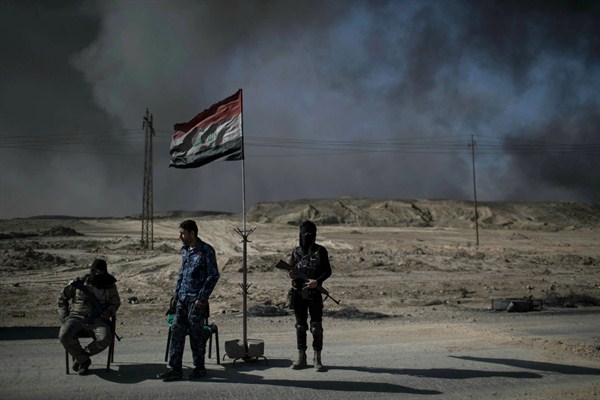Earlier this month, on Nov. 5, militants from the self-proclaimed Islamic State killed 26 civilians with a roadside bomb as they fled Hawija, a predominantly Sunni Arab town about 40 miles southwest of Kirkuk. With international attention focused on the battle for Mosul, the attack was just the latest sign of the ongoing humanitarian and security crisis on a forgotten battlefield in another part of northern Iraq.
Hawija’s approximately 200,000 civilians have lived under Islamic State control since June 2014. The town represents a strategically significant objective in the fight to secure northern Iraq and reintegrate liberated communities into the Iraqi state. But in their advance toward Mosul, Iraqi forces bypassed Hawija, leaving its liberation to the Shiite militias known as the Popular Mobilization Forces and the Iraqi Kurdish peshmerga—two groups that the town’s remaining Sunni Arab residents do not trust.
How Baghdad manages the operations to expel the Islamic State from Sunni towns like Hawija—in addition to Mosul—will go a long way in determining whether it can repair relations and calm sectarian tensions with predominantly Sunni areas that felt abandoned. That sense of marginalization fueled anti-government sentiment across northern Iraq three years ago. Yet Iraqi policymakers, Shiite militia leaders and peshmerga commanders have not offered any plan for the town’s liberation.

